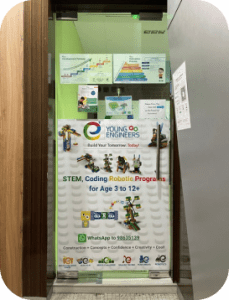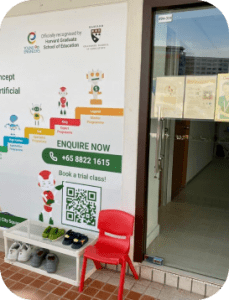Language and literacy are the foundation of a child’s learning process. No matter what other skills the child will acquire, language and literacy make the process easier. A child’s ability to communicate effectively verbally and in written form determines the child’s school and academic performance.
Also, language development is interdependent, so it helps develop the child’s cognitive skills and logical thinking. A child’s language knowledge can influence their creativity and imagination. And once a child knows how to read words, it is only a matter of time before they understand the language.
So, even though language and literacy seem like only one aspect of a child’s syllabus, they can not be treated in isolation because their effects spread through to other parts of the child’s early development and performance. This article discusses the importance of language and literacy in children and how parents can encourage language and literacy in their children.
Benefits of Language and Literacy in Children
If you consider language and literacy as just another part of the child’s learning process, you are not wrong, but here are the benefits that come with this aspect of your child’s development.
- Improved communication skills
When your child is well leaned in language and literacy, communicating with their peer and teachers comes easily and with confidence. Often, your child might not be quiet because they are shy; it might be because they do not know how to express themselves in words.
When your kids talk about how they do not want to be laughed at, it is partially due to knowing what to say but not knowing how to say it. An expanded vocabulary and improved creativity allow your child to express themselves without restraint and be more confident.
- Improved Brain Development
A child’s brain develops faster when younger than five years old. So if you want your child to have a good start, you should encourage and teach different essential skills at this stage. A child with a good language and literacy foundation will find it easy to learn other skills despite their level of difficulty.
Literacy skills tasks all parts of the brain’s functioning and development. So, while your child learns to talk, read, and sing, the brain cells form new connections and strengthen connections among the existing brain cells.
These connections are responsible for future learning abilities. So, whether or not your child understands you, speaking, reading, and singing to them helps their brain development.
- Better General Knowledge
A child who learns language and literacy early builds their vocabulary and general knowledge early. They have a more expanded vocabulary than their mates and find it easier to read and comprehend.
Even when you say words they are unfamiliar with, they can easily guess the meaning because they are familiar with the use of words and sentence formation. The child stays well-informed and ahead in terms of knowledge.
- Improved Self Esteem
It is easy for a well-learned child to build strong self-esteem than the other way around. A child that can speak and read well will be independent and self-confident. This helps them in all areas of their life and growth.
An independent child quickly develops logical thinking and problem-solving skills because of their exposure to reading materials. They are also more curious because they understand people’s words.
A child that learns language and literacy early will not be under pressure to learn it in the classroom. This makes it easy for them to focus on loving the learning environment and activities.
- Improved Focus and concentration
Children who learn language and literacy early have longer attention spans, as that is what it takes to learn a language and pick up reading skills. This is also why they have better concentration skills.
How to Improve Language and Literacy at Home
Now that you know the importance of language and literacy in your children, you should not limit language and literacy learning to school alone. Here are activities to do at home to help improve language and literacy development.
- Indulge Your Children in Conversations
One way to improve your children’s language development is to keep talking to them about different matters. Be intentional about making it a dialogue. Make the conversation interesting so that your child keeps responding, helping them build their use of words and communication skills.
You can talk about basic things like how your day went or your activities. Vary the words you use during the conversations and the context used. This ensures your child’s vocabulary is not limited to a specific niche.
- Encourage reading
The best way to improve your child’s literacy is to encourage them to keep reading. Buy books appropriate for your child’s age and encourage them to read them. You can read the book to or with them. The more your child reads, the better they become and language and literacy.
As they read the book, encourage them to look for new words and check their meanings. This helps them expand their vocabulary and become better readers and speakers. So, fill the home with books, get books for them as gifts, and set a routine to ensure they read.
- Ensure Clear Conversations
Just because your child is still young and uses baby talks tto communicate does not mean you should do the same. Engage your child in full conversations. Talk to them like you would an adult, only more slowly so they can comprehend. While talking slowly, enunciate the letters clearly and pronounce the consonants to make it easy for them when they want to say them.
Listen with rapt attention when they talk to you, and let them complete their sentences even if you know what they might want to say. When they find it difficult to form a sentence, say the words to them. For instance, “Oh, you need a spoon? Here is the spoon”. This makes it easier the next time they want to form a sentence.
Conclusion
The need for language and literacy in children can not be overemphasized. It is best if your child develops language and literacy early so they can easily develop other useful skills they need. Use the tips above to improve their language and literacy development.





